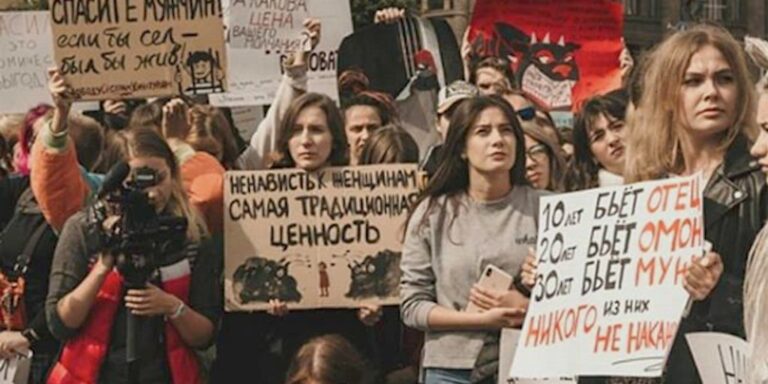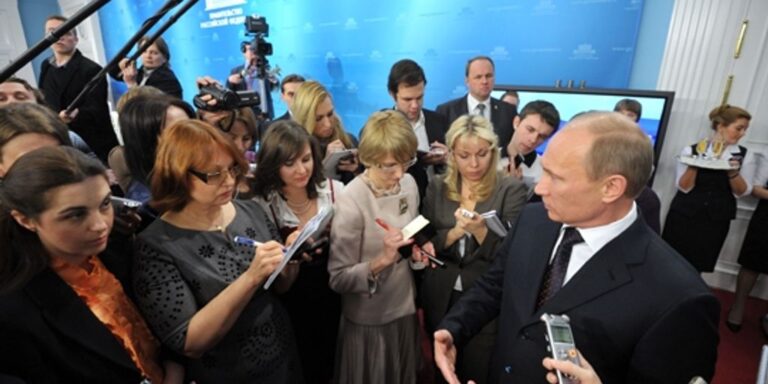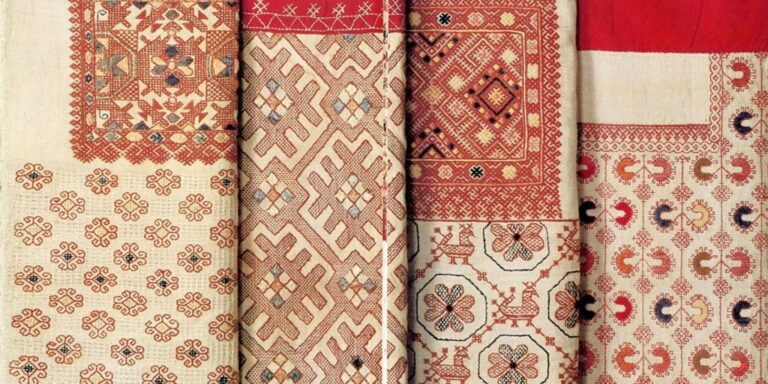Russian women’s names are not only melodious but also rich in history and cultural significance. This article delves into the beauty and meanings behind these names, exploring how they reflect Russian heritage and culture. From timeless classics to modern favorites, we uncover the stories behind the names and provide insights into the naming conventions and trends in Russia.
Key Takeaways
- Russian women’s names often carry deep cultural and historical significance, reflecting the country’s rich heritage.
- Names like Anastasia, Ekaterina, and Olga remain popular due to their timeless appeal and strong historical roots.
- Modern Russian names are influenced by global trends, yet they retain a unique Russian flavor.
- Choosing a Russian name involves considering factors like cultural significance, ease of pronunciation, and personal meaning.
- Russian names are increasingly being integrated into other cultures, showcasing their global appeal and versatility.
Exploring the Charm of Beautiful Russian Women’s Names

The Allure of Russian Names
Russian names often carry a melody and mystery that can captivate anyone’s interest. Names like Anastasia, Natalia, and Ekaterina not only sound beautiful but also have deep meanings rooted in history and culture.
Cultural Significance
The significance of names in Russia goes beyond mere labels. They often embody family histories, honor ancestors, and reflect the cultural values of the society. For instance, the name ‘Irina’ symbolizes peace, deriving from the Greek goddess of peace, Eirene.
Popular Picks
Among the most cherished names are Milana, Darya, and Agnessa. These names are not just popular; they resonate with grace and elegance, making them timeless choices for many parents today.
Top Picks for Beautiful Russian Women’s Names

Timeless Classics
When it comes to Russian women’s names, some have stood the test of time, enchanting generation after generation. Names like Anastasia (resurrection), Ekaterina (pure), and Olga (holy) are not only deeply rooted in Russian history but also carry a timeless elegance. These names are often associated with grand duchesses and iconic figures, making them perennial favorites.
Modern Favorites
In recent years, certain names have surged in popularity among new parents in Russia. Names like Sofia (wisdom), Alina (noble), and Yulia (youthful) are seen as both modern and chic. These names blend traditional Russian sounds with a contemporary twist, making them ideal for today’s young women.
Hidden Gems
For those looking for something unique, Russia offers a treasure trove of less common names that are both beautiful and meaningful. Names like Lada (goddess of beauty and fertility), Raisa (easy-going), and Svetlana (light) are exquisite and offer a distinct identity. These hidden gems are perfect for parents who wish to give their daughters a name that stands out in a crowd.
Exploring these names can be a delightful journey into the rich tapestry of Russian culture and history, perfect for anyone considering a name that carries depth and heritage.
The Meaning Behind Beautiful Russian Women’s Names

Symbolic Meanings
Russian names often carry deep symbolic meanings that reflect qualities or wishes the parents have for their child. For example, Nadezhda means ‘hope’, and Vera means ‘faith’. These names are not just labels, but are imbued with wishes for the characteristics they represent.
Historical Roots
Many Russian women’s names have historical roots that are centuries old, often derived from the names of saints or historical figures. For instance, Yekaterina, the Russian form of Catherine, is a name that has been borne by queens and saints, symbolizing purity and regality.
Cultural Insights
Understanding the meanings behind these names offers a window into Russian culture and values. Names like Lidiya (beautiful one) and Lyubov (love) reflect the importance of beauty and love in Russian culture, which are highly cherished attributes.
How Beautiful Russian Women’s Names Reflect Culture

Influence of History
Russian women’s names are deeply rooted in the country’s history, often reflecting the era’s social or political climate. For instance, the name ‘Vera’ meaning ‘faith’ became popular during times of turmoil, symbolizing a hope for the future. Names like ‘Nadezhda’ (hope) and ‘Lyubov’ (love) have been perennial favorites, illustrating the enduring values of Russian society.
Cultural Symbols
Many Russian names are derived from nature and orthodox Christianity, which are significant cultural symbols. Names such as ‘Lilia’ (lily) and ‘Alina’ (bright) not only highlight the beauty of Russian landscapes but also the spiritual symbolism in Orthodox Christian traditions. This intertwining of nature and spirituality showcases the unique cultural identity embedded in these names.
Modern Usage
In modern times, the usage of traditional Russian names continues to evolve. While some parents stick to classic choices, others opt for names that blend traditional meanings with a modern twist. For example, the name ‘Elena’ (shining one) remains popular not just for its beautiful sound but also for its representation of brightness and optimism in contemporary life. Additionally, the trend of using diminutive forms of names, like ‘Katya’ for Yekaterina, adds a personal touch, reflecting individual preferences and familial affection.
Choosing the Perfect Russian Name for Your Baby Girl
Choosing the perfect name for your baby girl is both an exciting and significant decision. It’s a name that will identify her throughout her life, so it’s important to choose one that carries meaning, cultural significance, and a beautiful sound.
Considerations for Naming
When selecting a Russian name for your baby girl, consider how the name sounds in both Russian and any other languages spoken in your family. Think about the ease of pronunciation and the possible nicknames that could stem from it. It’s also wise to consider the cultural and familial significance of the name.
Popular Trends
Currently, there’s a trend towards reviving old Russian names that carry deep historical roots and unique meanings. Names like Anastasia, Tatiana, and Ekaterina are seeing a resurgence in popularity. Additionally, modern parents are also leaning towards unique, less common names that stand out.
Name Compatibility
Consider how the name will fit with your family’s last name and any potential siblings’ names. The rhythmic flow and compatibility of the full name can have a big impact on its appeal. Choosing a name that resonates well with your family’s heritage and values is crucial.
The Most Popular Beautiful Russian Women’s Names Today

Current Trends
In the vibrant world of Russian names, certain names consistently top the charts due to their melodious sound and profound meanings. Names like Sofia, Anastasia, and Maria have become staples not just in Russia, but globally. These names are not only popular for their beautiful sounds but also for their rich cultural heritage and versatility across different languages.
Celebrity Influences
The influence of celebrities on name choices in Russia is undeniable. For instance, the name Irina has seen a surge in popularity, thanks in part to the international fame of model Irina Shayk. Similarly, the name Natalia has been popularized by figures such as Natalia Vodianova, enhancing its appeal among new parents looking for a name with star quality.
Regional Favorites
While some names enjoy nationwide popularity, others hold special significance in certain regions. For example, in the cultural and historical context of dating in Nizhny Novgorod, traditional names like Olga and Tatiana remain highly favored. These names not only reflect the rich history of the area but also embody a sense of local pride and identity.
Unique and Rare Russian Names for Girls

Uncommon Choices
If you’re looking for a name that stands out in a crowd, consider diving into the treasure trove of unique Russian girl names. These names not only sound beautiful but also carry distinctive meanings that can be a great conversation starter. For instance, names like Alenka (bright, shining light), Elara (shining light), and Vasilisa (royal) offer a blend of charm and rarity.
Historical Significance
Many unique Russian names are steeped in history and culture, offering not just a name, but a story. Names like Varvara (foreign, strange) and Yaroslava (fierce and glorious) reflect the rich tapestry of Russia’s past, embodying the strength and uniqueness of historical figures and folklore heroes.
Cultural Rarity
In the quest for a truly unique name, considering the cultural rarity of certain names can add an exclusive touch. Names that are less common, such as Elvira (true, white) and Elestria (delight), can provide a sense of individuality and distinction. These names are not just labels, but a celebration of heritage and uniqueness, perfect for those who cherish originality and cultural depth.
The Influence of Russian Literature on Women’s Names

Literary Names
Russian literature has been a significant source of inspiration for naming trends in Russia. Names like Anna (from Anna Karenina) and Elizabeth (from various literary works) not only reflect the deep narratives of Russian classics but also bring a touch of elegance and historical depth to a name. These names are often chosen by parents who appreciate literature and wish to imbue their child’s identity with the richness of Russian culture.
Historical Context
The impact of literature on naming can be traced back to the great Russian novelists like Tolstoy and Dostoevsky, whose characters often personified the virtues and struggles of their times. Names such as Natasha (from War and Peace) and Sonya (from Crime and Punishment) are steeped in the cultural and historical milieu of their literary origins, offering more than just a name, but a story and a personality to aspire to.
Modern Adaptations
In contemporary times, the influence of Russian literature on naming continues, albeit in more modern forms. Characters from recent novels and even popular films continue to inspire the names of new generations. This trend is particularly noticeable in urban areas like Moscow and even in the context of dating in Saint-Petersburg, where the cultural heritage of names is celebrated and carried forward into modern relationships and families.
Celebrating Russian Heritage Through Names
Family Traditions
In Russia, names are more than just a way to address someone; they are a celebration of heritage and family history. Many families choose names that have been passed down through generations, creating a strong connection to their ancestors. This tradition not only honors those who came before but also instills a sense of pride and belonging in younger generations.
Regional Variations
Depending on where you are in Russia, the same name can have different variations, reflecting the diverse cultural landscape of the country. For instance, the name ‘Anna’ might be affectionately called ‘Anya’ in one region and ‘Anechka’ in another. These variations showcase the rich tapestry of Russian culture and how deeply it is woven into the fabric of everyday life.
Preserving Culture
It’s fascinating how names can serve as a vessel for preserving culture. By choosing names that are emblematic of Russian history and values, families play a crucial role in keeping the culture alive. This practice is not just about maintaining identity but also about teaching the next generation the importance of their roots and the stories that shaped their community.
How Russian Names are Integrated into Other Cultures

Global Influence
Russian names have transcended their origins, weaving seamlessly into the fabric of global cultures. This integration is evident from classrooms to boardrooms around the world, where names like Anastasia and Natalia are as common as any local names.
Cross-cultural Adaptations
The adaptability of Russian names is remarkable. For instance, the name ‘Elena’ can be found in various forms such as ‘Helen’ in English or ‘Helene’ in French. This versatility makes Russian names a popular choice among parents of different nationalities.
International Trends
The charm of Russian names is not confined to Russia alone. In cities like New York, London, and even in the dating scene in Novosibirsk, Russian names carry a certain allure that is recognized worldwide. The global appeal of these names is a testament to their timeless beauty and the cultural richness they embody.
The Art of Naming: A Look at Russian Naming Conventions

Naming Rules
In the world of Russian names, there’s a beautiful structure that goes beyond just picking something that sounds nice. Every Russian has three names: their first name, a patronymic (derived from their father’s first name), and a surname. This format not only identifies a person but also connects them to their family history and lineage.
Ceremonial Aspects
When it comes to naming ceremonies, Russians often celebrate the naming of a child with a small gathering or a family event. This ceremony is not just about giving a name, but it’s a celebration of the new life and its future contributions to the family’s legacy.
Family Naming Patterns
Families often follow specific patterns when naming their children, sometimes repeating names across generations to honor ancestors. This practice not only strengthens family bonds but also preserves the family history through names.
Did you know? In Russia, it’s quite common to use diminutive forms of names in daily interactions, which adds a layer of affection and familiarity.
Exploring Regional Differences in Russian Women’s Names
Geographical Influences
Russia’s vast landscape is mirrored in the diversity of its women’s names, which vary significantly from one region to another. For instance, while traditional names like ‘Svetlana’ or ‘Olga’ might be common in the western parts, names like ‘Aysylu’ (meaning moonlight in Tatar) are more prevalent in regions like Tatarstan. This geographical variation not only adds a rich layer to the Russian cultural fabric but also reflects the historical migrations and settlements across the vast nation.
Cultural Diversity
The cultural tapestry of Russia is woven with various threads from over a hundred ethnic groups, each contributing its unique set of names. Names like ‘Leyla’, ‘Zarina’, and ‘Renata’ are found more frequently in areas with a high concentration of specific ethnic minorities. This diversity is celebrated in numerous festivals and gatherings, where naming traditions are often discussed and upheld as a vital part of cultural identity.
Local Favorites
In some regions, certain names have gained popularity due to local celebrities or historical figures. For example, the name ‘Natalya’ might be incredibly popular in a region if a well-known local figure or celebrity bore the name. This phenomenon is particularly noticeable in smaller communities where local influence plays a significant role in naming conventions. Additionally, the trend of dating Russian women 40–50 has seen a resurgence in traditional names, as these age groups tend to prefer names that resonate with their cultural heritage.
Dive into the fascinating world of Russian women’s names and their regional variations on our website. Discover how names differ from Moscow to Siberia, and learn about the cultural significance behind each one. For a deeper exploration and to connect with others interested in this topic, visit our website today!
Wrapping Up
As we’ve explored the beautiful tapestry of Russian women’s names, we’ve uncovered not just the sounds but the deep meanings behind them. Each name carries a story, a slice of culture, and a touch of timeless beauty. Whether you’re naming a child, penning a character in your next novel, or just curious about the rich linguistic heritage of Russia, these names offer a fascinating glimpse into a world of tradition and creativity. Remember, each name is more than just a label; it’s a gateway to a rich cultural narrative and personal identity.
Frequently Asked Questions
What are some popular Russian women’s names?
Some popular Russian women’s names include Anastasia, Svetlana, Irina, Olga, and Tatiana.
What are some unique Russian women’s names?
Unique Russian names include Volya (freedom), Zarnitsa (summer lightning), and Zoryana (morning star).
What does the name ‘Anastasia’ mean?
The name Anastasia means ‘resurrection’.
Are Russian women’s names linked to cultural symbols?
Yes, many Russian names have cultural significance, often reflecting attributes like beauty, strength, and nobility.
Can Russian women’s names be used internationally?
Yes, Russian names are globally recognized and can be used internationally, often carrying their unique charm and elegance.
What considerations should be made when choosing a Russian name for a baby girl?
Consider the name’s meaning, pronunciation ease, cultural significance, and family traditions.
What are some tips for understanding Russian naming conventions?
Russian names often include a first name, patronymic (based on the father’s name), and a surname. Understanding these components can help in grasping the full cultural context.
How do Russian names reflect the local culture and history?
Russian names often reflect the country’s rich history and cultural heritage, embodying the qualities valued by society such as bravery, grace, and intelligence.






















+ There are no comments
Add yours